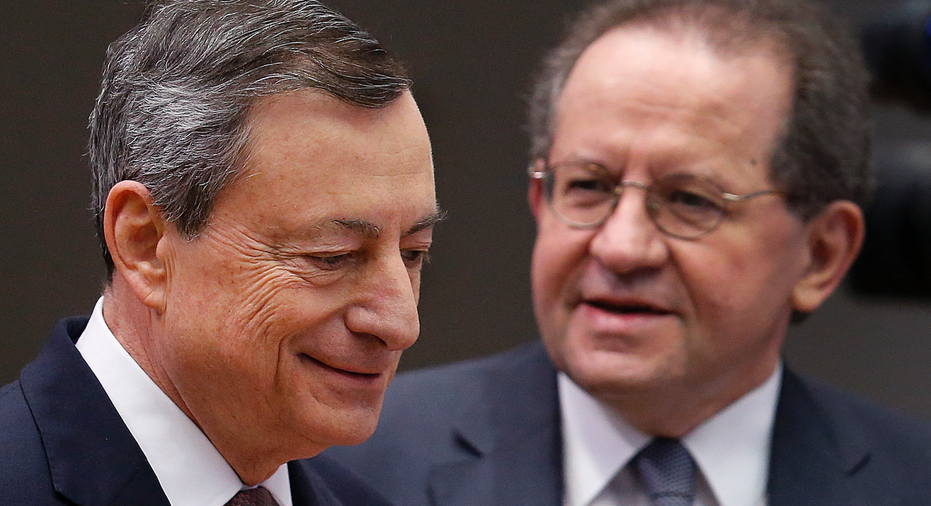European Central Bank looks to review stimulus duration

FRANKFURT, Germany – Top officials at the European Central Bank may revise the outlook for their massive monetary stimulus program early this year, according to an account of their last meeting.
The report published Thursday showed the officials remained wary at their Dec. 14 meeting of prematurely signaling an expected exit from the bond-buying program, which is credited with accelerating an economic recovery in the 19 countries that use the euro currency.
Members of the 25-person governing council that sets monetary policy widely agreed on "the merits of a steady hand in communication" in order to keep investors from anticipating an eventual end to the stimulus and sending market interest rates higher in anticipation.
At the Dec. 14 meeting, the ECB council left benchmark interest rates and its stimulus program unchanged. The bank had said in October it would continue its bond-buying stimulus at a reduced rate of 30 billion euros ($36 billion) per month at least through September, leaving the exact end date unclear.
But according to Thursday's report, the ECB officials at their last meeting felt that as the economy strengthens, the language about stimulus withdrawal "could be revisited early in the coming year" — that is, early in 2018. The council's next meeting is Jan. 25.
The news raised expectations of more detail on a possible end date for the bond-buying stimulus program. That pushed the value of the euro up Thursday by a sharp 0.8 percent against the dollar, to $1.2046
The bank's stimulus policy has aimed at overcoming sluggish inflation and growth in the wake of the Great Recession and subsequent eurozone debt crisis that saw several members of the currency union need bailouts from the other members.
The stimulus has had wide-ranging effects for ordinary people. The purchases have driven down long-term interest rates, helping businesses and governments that need to borrow, but depriving savers of all but the most miserly returns on conservative holdings such as bank deposits. ECB President Mario Draghi credits the stimulus with re-energizing the economy and helping create millions of new jobs as the eurozone's unemployment rate has fallen from above 12 percent to 8.7 percent.
Expansive monetary policy by central banks in major economies is also credited for the recent buoyance in share prices that has sent major indexes to new highs.
The account suggested some pushback from stimulus skeptics, who appear to be a minority on the council. At least one member said that "a gap appeared to be emerging between favorable economic conditions and a policy stance that remained in a crisis configuration." Jens Weidmann, the head of Germany's Bundesbank central bank and a governing council member, has publicly called for fixing an end date. The accounts of the ECB meetings don't include names or vote totals.
The bond-purchase stimulus, launched in 2015, is a way of pumping newly created money into the banking system, a step that should help push inflation higher toward the bank's goal of just under 2 percent. Currently, inflation is running at 1.4 percent in the 19 countries that use the euro currency. The ECB's stimulus effort also includes keeping its benchmark interest rate at a record low of zero.
The ECB is far behind the U.S. Federal Reserve in withdrawing crisis-era stimulus. The Fed has started raising interest benchmarks and letting some of its bond holdings run down as the bonds expire, a step that gradually withdraws some stimulus. The ECB has made clear that it will not raise interest rates until well after its bond purchases end. That means increases are not likely until sometime in 2019.



















